Types of EV Chargers for PCO Drivers in London
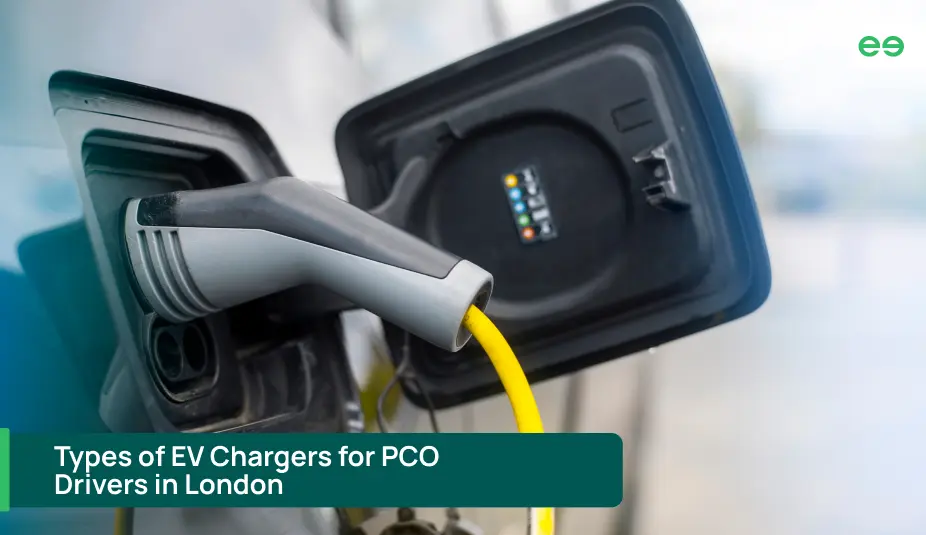
EVs are becoming popular among PCO drivers in London due to their low running costs. However, charging an EV takes a long time which can be an issue for drivers on a PCO car hire plan.
Spending your valuable time on charging stations during driving hours can cause downtime and missed fares.
To minimise your downtime, it’s important to know the types of chargers available in London. This will help you determine when and where to charge during a shift.
In this article, we have explained the types of EV chargers in London and other relevant information to help you plan your charging sessions smartly.
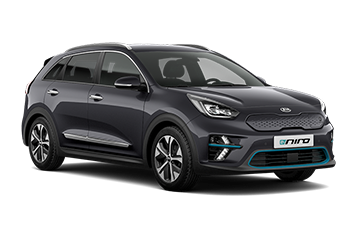



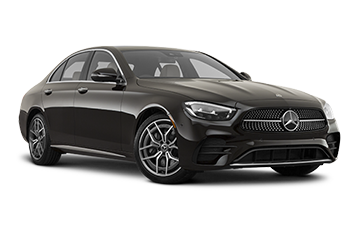
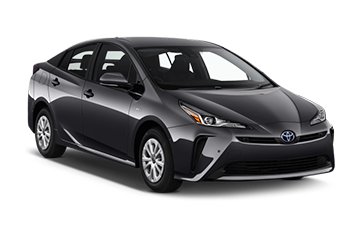
Article Highlights
- Speed categories of EV chargers
- Common charging plugs and sockets in London
- Key tips for EV PCO drivers
Speed Categories of EV Chargers
EV chargers come in different categories. The most common ones include:
Slow Chargers (Up to ~7 kW AC)
They are mostly used at home for overnight charging as they can take several hours to fully charge a battery. If you have off-street parking, a slow charger at home can help you avoid most of the costs and delays that come with public charging. Many residential streets in London also have slow chargers on lamp posts or kerbside to make affordable charging more accessible to EV drivers.
Fast Chargers (Typically ~7 kW to ~22 kW AC)
You can usually find these in public parking lots or supermarkets. Depending on the battery size, a fast charger can take 3 to 5 hours to fully charge an EV.
Rapid Chargers (DC, Typically ~50 kW and Above)
These chargers can offer up to 80% charge in about 30 to 60 minutes, and are suitable for mid-shift top-ups. However, rapid chargers can be expensive per kWh. Plus, they usually have long queues which can increase the waiting period. London has 1,000+ rapid charging points and more are being added.
Ultra-Rapid Chargers (DC, 100 kW to 350 kW)
These chargers are standard along major roads and motorway links. A rapid charger can charge your EV in just 20-30 minutes, making them ideal for short breaks. However, their frequent use can damage the battery. Try to use them only when you have no other option.
Also Read: How Much Does It Cost to Charge an EV?
Ready to electrify your earnings? Switch to a Fleeto EV and drive smarter. Our EVs work perfectly with London’s charging network. You can avoid ULEZ charges and slash your fuel costs as well. So, hire an EV with Fleeto and keep more of what you earn.
Common EV Connector Types in London
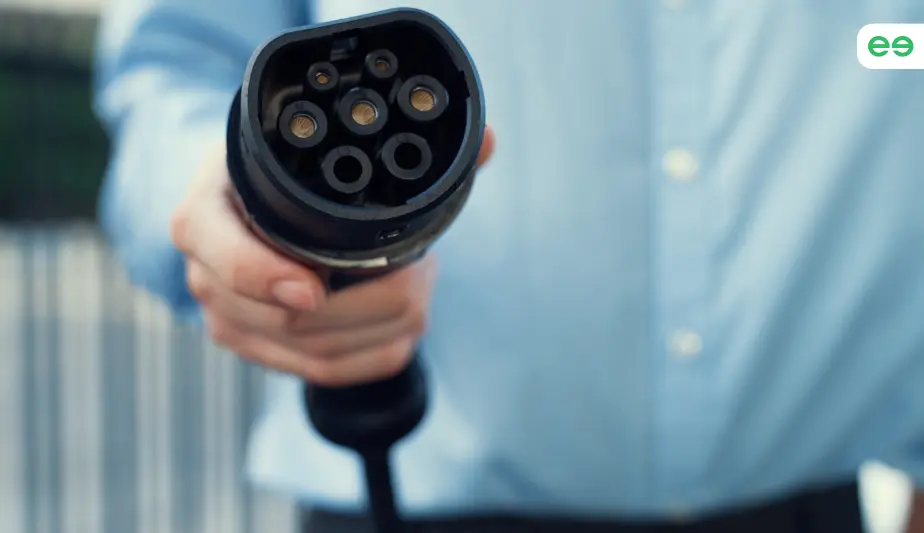
EVs have different types of connectors, including:
Type 2 (AC)
It’s the standard connector for AC chargers in the UK with speeds up to 22 kW. If your EV has a Type 2 inlet, you can use most public chargers in the UK.
CCS (Combined Charging System)
Most new electric vehicles (EVs) in the UK come with CCS inlets for fast (DC) charging. A CCS socket supports both Type 2 AC and DC chargers. This allows you to use AC chargers for slow charging and DC chargers for when you need to get back on the road quickly.
CHAdeMO
CHAdeMO is a DC connector found in some older EVs or Japanese-imported models. However, it is slowly being phased out. Many newer EVs come with a CCS inlet because it’s compatible with slow and fast chargers.


Key Tips for EV PCO Drivers in London
PCO drivers work an average of 8-10 hours. Here are some important points to help you plan your charging sessions with minimum downtime.
Vehicle Choice and Connector
A CCS inlet supports both slow AC and fast DC chargers. When renting a PCO-licensed car, choose an EV with a CCS connector. If your car has a Type 2 AC connector, confirm the compatibility of its onboard charger as well. A charger that only supports 7 kW won’t be compatible with a 22 kW AC charger.
Battery Capacity and Range
A bigger battery lets you go farther, but it takes longer to charge as well. Consider your daily mileage with passenger pickups and idle times when choosing an EV.
Charging Locations
A full battery can last an 8-10 hour driving shift. Charge your car at home to start your daily shifts with a full battery. If you need to charge during a shift, consider using a rapid or ultra-rapid charger to top off during breaks.
Local Infrastructure and Future Plans
The charging infrastructure in London is expanding rapidly thanks to the Uber-borough initiative. It aims to make fast chargers easily accessible to EV drivers through partnerships with charging providers. Check if your area is included in the list of boroughs that Uber is targeting. It can help minimise the need to travel far to charge.
Use Apps to Check Cost and Availability
Apps like Zap-Map can help you find the nearest chargers with price and availability. This helps you avoid going to the busy or incompatible chargers. You can also reserve your charging slot using the app to minimise downtime.
Also Read: Cut Your Costs: Use Free EV Charging Stations in London
Final Thoughts
The charging infrastructure for EVs is improving in London but it will take some time to become widely available for all private hire drivers. If you have private parking, consider installing a home charging setup and choose an EV in your PCO car hire plan that’s compatible with it for overnight charging. It’s the most affordable way to charge an EV.

Start Earning Today.
Frequently Asked Questions
What is the best charger to use during my shift?
Use a rapid charger. You can get an 80% charge in only about 30 minutes. This speed fits perfectly into a short meal break and minimises your downtime.
Should I charge my EV at home?
Yes, charge at home overnight if you can. This lets you start every shift with a full battery. Plus, home electricity costs much less than public charging, saving you a significant amount of money.
What connector should my hired EV have?
Choose an EV with a CCS connector. It offers more flexibility, as you can use both slow AC chargers and rapid DC chargers. This ensures compatibility with most public chargers in London.
How do I find a free charger quickly?
Use a live map app like Zap-Map. It shows all your nearby chargers with real-time availability status and pricing. This prevents wasted trips to busy stations.
Do rapid chargers damage the battery?
Frequent use of rapid chargers can damage battery health over time. The high power creates extra heat and stress, which slowly degrades the battery. Use rapid chargers only when necessary during your shift.
Suggested Blogs
To get more information like this
Subscribe to our newsletter
Hire an EV Today and Enjoy Lower Running Costs With Fleeto!
Driving an EV means low expenses and a high priority on eco-friendly rides. At Fleeto, all our EVs are compatible with London’s charging infrastructure. Get your preferred car on simple terms and make your shifts more profitable

